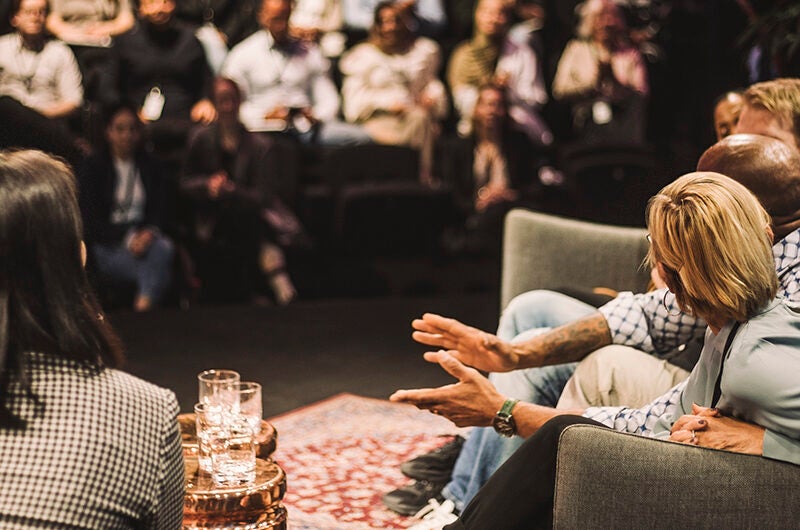Today we put the spotlight on the makeup and diversity of the SAGE reviewer community, exploring where they are based, their fields of expertise and the impact they have on the wider global research ecosystem.
This week, SAGE marked more than 65,000 of their reviewers getting recognition on Publons for their time and effort put into peer review. We are really pleased to celebrate this landmark with SAGE who have been valued partners since 2015 and contributed to our inaugural Global State of Peer Review report last year. Like the Publons team, SAGE has a strong ethos of supporting the peer review community and ensuring their incredible work gets the recognition and reward it so rightly deserves. Part of that involves making sure the right resources and processes are in place to support and enhance the reviewer experience.
To further discuss that experience, we reached out to Doctor Parveen Ali and Professor Sunday Ojolo, two SAGE reviewers. They shared their thoughts on peer review, its impact on the wider scholarly community and Publons.
Publons: During your career so far, what have been the benefits of being a reviewer and editor?
Parveen Ali: Being a reviewer and an editor of a journal has helped me become a better academic as it provides me with opportunities to read research on different topics, coming from different parts of the world and written in very different styles. This in turn helps improve my writing abilities and enhances my self-confidence in my ability to write.
Sunday Ojolo: I have improved my writing style and skills over time as a reviewer and editor learning from the variety of approaches and styles of different journals and being exposed to a broad spectrum of writing skills of different authors.
Publons: What do you find most challenging about being a reviewer?
Parveen Ali: These days the most challenging aspect of being a reviewer is that there are too many requests for reviews from many different journals and some of these could be predatory. It’s a demanding task and academics are generally an overworked group and finding time to complete the review in a timely manner is very hard. On the other hand, as an editor, I find it very challenging to identify and recruit appropriate reviewers to review manuscripts as people often refuse and finding reviewers can be a time consuming and frustrating process.
Publons: Why did you create your Publons profile and how do you use it?
Parveen Ali: I believe before Publons, there was no place where you could keep a track of the number of reviews you did for any particular journal or in a specified time period.
Reviewing is usually a thankless job which is expected, but never provides any tangible benefit to reviewer. Usually there is no evidence to present in the CV or for your applications (for career development or promotion purposes for example).
In my opinion I think Publons has provided a place where all your reviews are mentioned and are stored and, therefore, evidence to demonstrate your work and contribution. In future it may enable reviewing activity to be recognised in one’s workload.
Publons: How important do you think peer review is in the mentoring and nurturing of the new generation researchers?
Parveen Ali: I think peer review is an important element of academic and scientific community. It helps develop appropriate and rigorous outputs which can be published papers, research reports, research bids, books or anything else.
Sunday Ojolo: Peer review is a great way for up and coming researchers to learn from well established researchers. They can learn a lot from how a reviewer engages with their research.
A passionate reviewer researcher is really valuable in encouraging early career researchers to persist and work more on their research in order to get it published (even if their article is initially rejected).
Parveen Ali: Involving younger researchers in the peer review process is important to help them develop reviewing skills. It also helps them develop confidence in their own writing abilities as they can compare their writing with the writing of other authors in the discipline and this in turn may help them become confident writers themselves.
Publons: If there was one thing you could change about the peer review process, what would it be?
Parveen Ali: It would be to help reviewers understand the importance of being nice, constructive and compassionate to authors. I would like them to be aware of the feedback they give to authors. I think it is important to realise the purpose of the review and how it contributes to scholarly activities.
Some peer reviewers can be very harsh and can try to turn somebody else’s paper or research into their own paper research and I think that’s not appropriate. I think this all happens because no official training or help is available for the reviewers and generally people learn through trial and error. Granted, the situation has improved substantially, but still a lot more can be done.
Publons: How important is the training and professional development of peer reviewers? Does this need greater collaboration between academic institutions and publishers?
Parveen Ali: I think the training and professional development of the reviewer is very, very important, though there are not many opportunities available. Journals are getting better at providing information, however a lot more needs to be done. I do agree that this needs greater collaboration between academic institutions and publishers.
Thanks Parveen and Sunday!
Dr Parveen Ali is a senior lecturer at the University of Sheffield, a Registered Nurse, Registered Nurse Teacher and Senior Fellow of Higher Education Academy and Fellow of the Royal Society of Arts. She is an associate editor of Nursing Open, a contributor to The Conversation and a presenter on LinkFM. She was a founding member of The Lancet Commission on Nursing.
Prof. Sunday Ojolo is an Associate Professor of Machine Design and Manufacturing Engineering in University of Lagos, Nigeria. His area of research revolves round Biomass Gasification Technology, Renewable Energy, Machinery Development and Manufacturing Engineering. He is currently on four international journals’ editorial boards. He has published over sixty research papers to date. He is a member of American Society of Agricultural and Biological Engineers.






